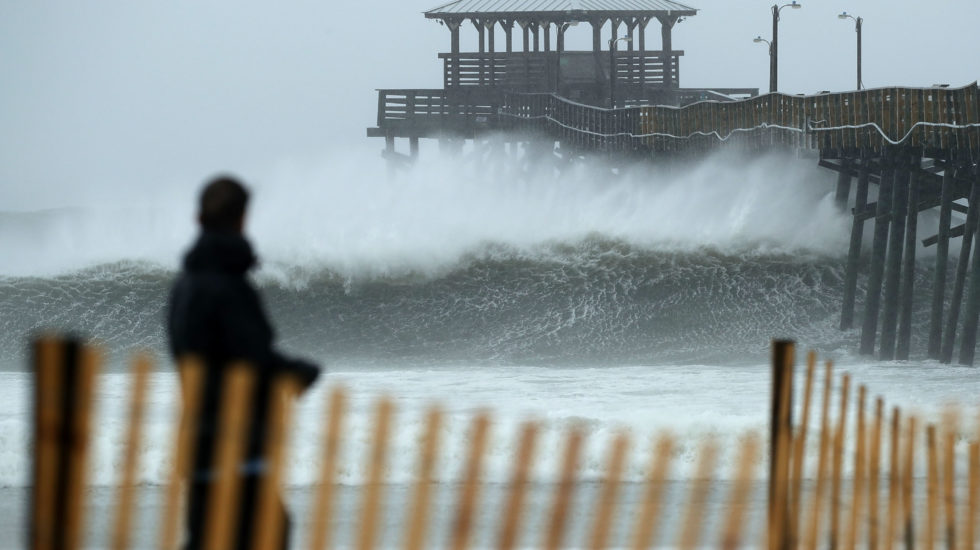Climate change caused by human activity is here now, tipping points have already been crossed, it’s rapidly getting worse — and there’s no going back, according to an alarming new report from the United Nations.
“The warming climate is already killing coral reefs, supercharging monster storms, and fueling deadly marine heat waves and record losses of sea ice,” reports MSN, adding that the report “finds that such effects only foreshadow a more catastrophic future as long as greenhouse gas emissions remain unchecked.”
The study by the UN’s Intergovernmental Panel on Climate Change (IPCC) makes it clear “that allowing carbon emissions to continue rising would upset the balance of the geophysical systems governing oceans and the frozen regions of the Earth so profoundly that nobody would escape untouched,” says Reuters.
The report is “shocking reading,” said Paris Mayor Anne Hildalgo, who chairs C40 Cities, a global group of climate-conscious city leaders.
“Extreme high temperatures, coastal flooding, and more frequent natural disasters are becoming the new normal … This is what the climate crisis looks like now,” Hidalgo said.
The study, involving more than 100 scientists around the world, warns that extreme coastal flooding — so-called “100-year events” — will strike every year by 2050, and global sea levels will rise by more than three feet by the end of the century, as vast amounts of water from melting ice pour off Antarctica, Greenland and glaciers elsewhere.
Such melting will threaten more than 1.3 billion people living in both low-lying coastal regions and in high elevations, particularly in Asia, where glaciers feeding major rivers will shrink, cutting water supplies.
U.S. cities most at risk from sea-level rise include Los Angeles, Miami, Savannah, Honolulu and San Diego, along with San Juan, Puerto Rico, and Key West. Elsewhere, cities like Jakarta, Manila, Bangkok, Lima, Singapore, Barcelona and Sydney are threatened.
Global warming and sea-level rise will also continue to amplify storm surge events, said Princeton climate scientist Michael Oppenheimer. “We’re talking about storms that, when they come, result in loss of life, loss of property, shut down cities.”
The report was unveiled Wednesday at an IPCC climate summit in Monaco.
“We are in a race between two factors: one is the capacity of humans and ecosystems to adapt, the other is the speed of impact of climate change. This report…indicates we may be losing in this race. We need to take immediate and drastic action to cut emissions right now,” IPCC chairman Hoesung Lee said during the presentation.
Rising heat will also thaw permafrost in Alaska, Siberia and elsewhere, releasing “vast quantities of greenhouse gases … [and] unleashing feedback loops driving faster warming,” Reuters says.
Up to now, the oceans have absorbed much of the excess heat trapped in the atmosphere by greenhouse gases, but that capacity is dwindling fast.
“As the oceans get hotter, so-called ‘marine heatwaves’ are becoming more intense, turning coral reefs boneyard white — including much of Australia’s Great Barrier Reef,” Reuters says.
So if climate change can’t be stopped, is the situation hopeless? Only if we do nothing.
“We must not let these climate change impacts paralyze us,” wrote Lynn Scarlett of the Nature Conservancy in an email. “We must address root causes of climate change by slowing and eventually stopping accumulation of greenhouse gas emissions.”



